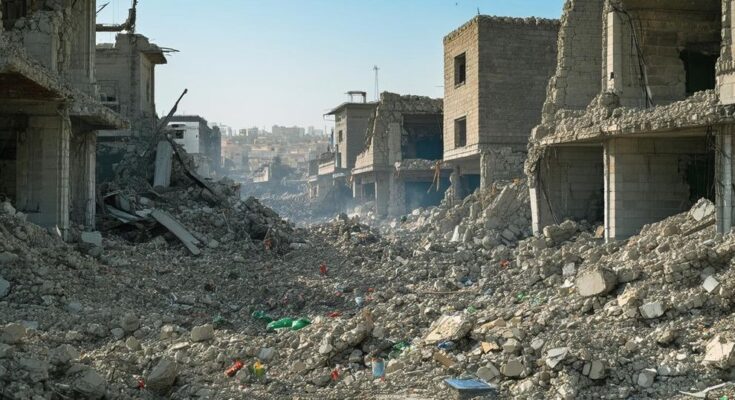Michaela Creel’s co-op with the High Atlas Foundation in Morocco allowed her to engage in recovery efforts following the September 2023 earthquake. The foundation, focused on sustainable development in agricultural practices, women’s empowerment, and clean water access, has been pivotal in supporting farming communities affected by the disaster. Creel’s work involved communication strategies, interactions with local farmers, and the creation of educational resources, culminating in a culturally immersive experience that highlighted the importance of community-led initiatives.
Following the devastating earthquake that struck Morocco’s High Atlas mountain region in September 2023, significant recovery efforts have been underway. One such initiative has been spearheaded by Michaela Creel, a third-year student majoring in international affairs and cultural anthropology, who participated in a co-op with the High Atlas Foundation. This nonprofit organization, established in 2000 by former Peace Corps volunteers, is dedicated to promoting sustainable development within Moroccan communities. During her semester-long co-op, Creel worked closely with local farmers affected by the earthquake, observing firsthand the vital role of agriculture in these traditional communities that have cultivated olives and almonds for generations. The High Atlas Foundation operates on three main principles: improving agricultural practices, empowering women, and enhancing water management systems. The foundation has planted over five million trees and continues to provide saplings to aid local farmers while also conducting workshops to empower women and ensure access to clean water. Creel’s role focused on communications, where she documented the organization’s recovery efforts, collaborated with farmers, and contributed to rebuilding essential infrastructure such as water canals. One of her notable projects involved creating an interactive online tour of a nursery to educate users about the importance of trees, coinciding with International Forest Day. Living in Medina alongside two other co-op students, Creel experienced genuine cultural immersion, fostering relationships with local residents, including shopkeepers and her colleagues. This hands-on experience provided her with a perspective that transcended conventional study abroad programs, highlighting the warmth and hospitality of the Moroccan people. Overall, Creel’s co-op illustrated the significant impact of community-focused development efforts in the wake of a natural disaster, reaffirming the importance of sustainable practices to support resilience and recovery in affected regions.
The High Atlas Foundation is an organization dedicated to fostering sustainable development in Morocco. Established by former Peace Corps volunteers, it aims to collaborate with local communities to address pressing agricultural, social, and environmental challenges. The organization is particularly active in the High Atlas mountain region, where natural disasters, such as the September 2023 earthquake, have complicated ongoing sustainability efforts. In the wake of the earthquake, organizations like the High Atlas Foundation are crucial for providing relief and implementing strategies to bolster community resilience.
In conclusion, Michaela Creel’s co-op with the High Atlas Foundation exemplified the significance of community engagement in sustainable development, particularly in the aftermath of a natural disaster. The foundation’s multifaceted approach—addressing agricultural advancement, women’s empowerment, and water access—demonstrates a comprehensive strategy for fostering resilience in rural Moroccan communities. Creel’s firsthand experiences not only enriched her education but also contributed to a collaborative recovery effort that highlights the power of community-based initiatives in challenging times.
Original Source: news.northeastern.edu




